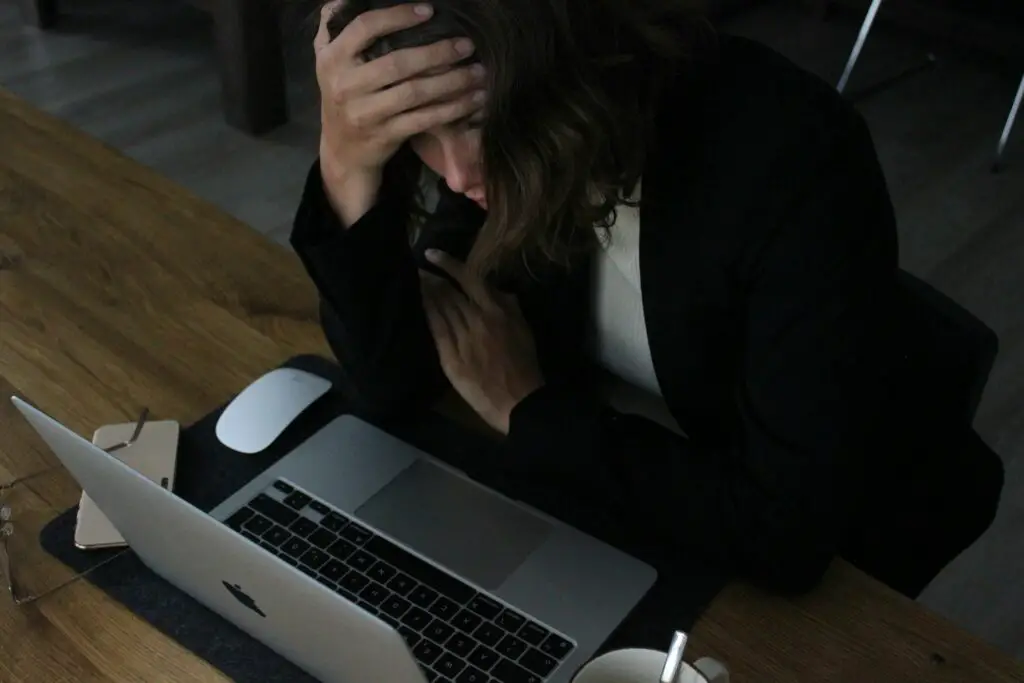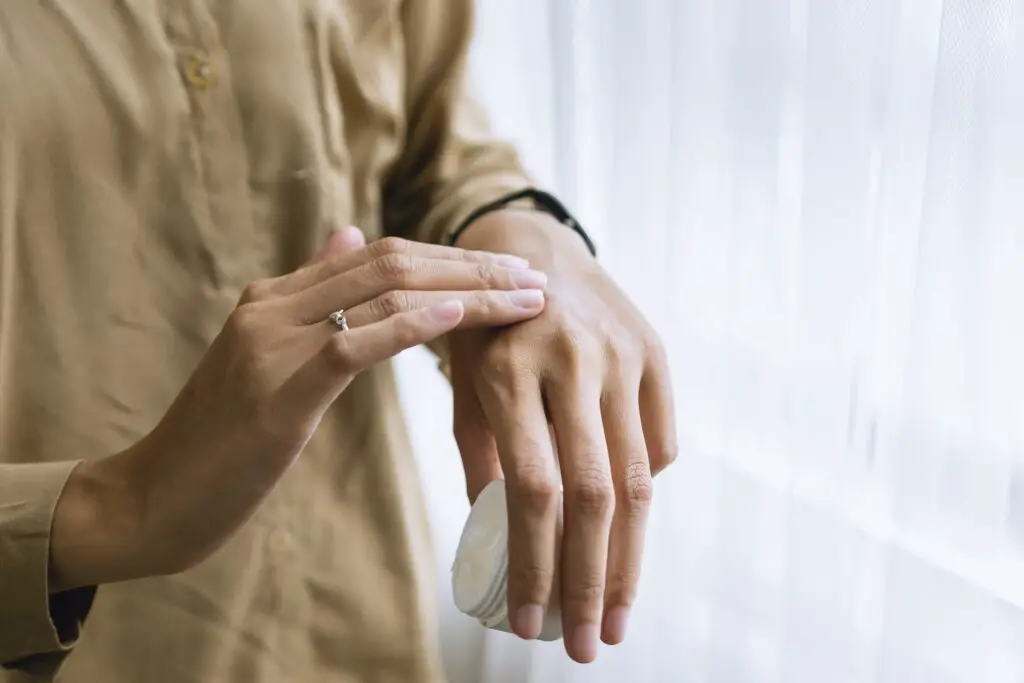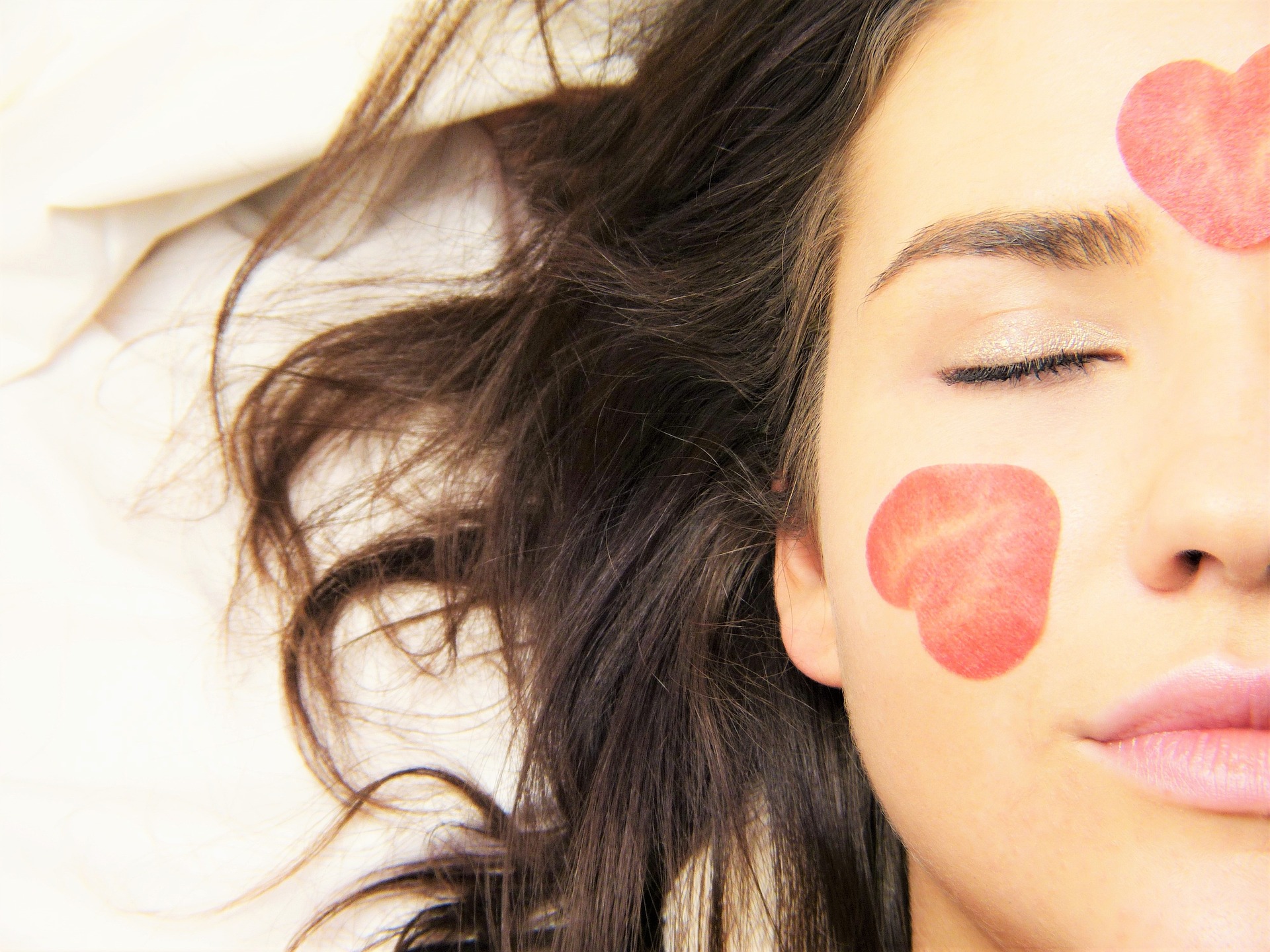Coffee is one of the most beloved drinks worldwide.
Its rich aroma and energizing effect make it a daily ritual for many.
But how does this favorite beverage impact your skin?
While coffee has several health benefits, it can also cause skin issues.
Understanding the effects of coffee on your skin is crucial.
This knowledge can help you make informed choices and maintain healthy, glowing skin.
Let’s explore how coffee can both help and harm your skin.

Here’s The Short Answer
Coffee can have both positive and negative effects on your skin.
It contains antioxidants that combat aging and can be beneficial when applied topically.
However, excessive consumption can lead to dehydration, increased stress hormones, and disrupted sleep, which may negatively impact skin health.
Moderation and mindful consumption are key.
How Does Caffeine Affect Your Skin?

Caffeine is a powerful stimulant.
It boosts alertness and energy, making it a popular choice to start the day.
But what does it do to your skin?
Firstly, caffeine acts as a diuretic.
This means it increases urine production, which can lead to dehydration.
Dehydrated skin can become dry and dull.
It can also show more fine lines and wrinkles.
Caffeine also affects your hormones.
It can increase the level of cortisol, a stress hormone.
High cortisol levels can lead to more oil production in your skin.
This extra oil can clog pores and cause acne breakouts.
Negative Effects of Coffee on Skin

Dehydration and Dry Skin
As mentioned earlier, Coffee acts as a diuretic.
This means it makes you urinate more often, leading to dehydration.
When your body loses water, your skin suffers too.
Dehydrated skin can become dry and lose its glow.
It may also develop fine lines and wrinkles more easily.
Keeping hydrated is key to maintaining healthy skin.
Increased Stress Levels
And as we also mentioned already, drinking coffee raises cortisol levels in your body.
Cortisol is a stress hormone.
High levels of cortisol can increase stress and cause your skin to produce more oil.
This extra oil can clog pores, leading to acne.
Managing stress and monitoring coffee intake can help keep your skin clear.
Disrupted Sleep Patterns
Drinking coffee, especially late in the day, can make it hard to fall asleep.
Poor sleep affects your skin’s ability to repair itself.
This can lead to premature aging and dull skin.
Good sleep is essential for healthy, rejuvenated skin.
Acne and Breakouts
Coffee can exacerbate acne, especially when combined with dairy and sugar.
Dairy and sugar can trigger breakouts.
Additionally, stress hormones from caffeine can boost oil production in your skin.
This can lead to clogged pores and acne.
Gut Health and Skin Connection
Poor-quality coffee can disrupt your gut flora.
This imbalance in your gut can lead to inflammation, which can affect your skin.
Inflammation in the gut can show up as acne or eczema on your skin.
Opting for organic coffee can be a better choice for both your gut and skin health.
Potential for Inflammation
Caffeine can cause skin inflammation.
Coffee’s high acidity can negatively affect your skin.
Inflammation can make your skin red, irritated, and more prone to breakouts.
Reducing your caffeine intake can help manage inflammation and improve your skin’s appearance.
Positive Effects of Coffee on Skin

Antioxidant Properties
Coffee beans are rich in antioxidants.
Antioxidants help protect your skin from free radical damage.
Free radicals can cause premature aging, leading to wrinkles and fine lines.
By neutralizing these free radicals, antioxidants in coffee can help maintain youthful skin.
Topical Benefits of Coffee
Coffee isn’t just for drinking; it’s also used in skincare products.
Topical caffeine can have positive effects on your skin.
It can reduce puffiness and redness due to its anti-inflammatory properties.
Applying coffee-based products can also help reduce the appearance of cellulite.
Using coffee scrubs or masks can leave your skin looking fresh and rejuvenated.
Potential Benefits for Rosacea
Studies have shown a link between coffee consumption and a lower risk of rosacea.
Rosacea is a skin condition that causes redness and swelling.
While the exact reason is unclear, coffee’s anti-inflammatory properties might help.
However, more research is needed to confirm these findings.
Drinking coffee could potentially be beneficial for those with rosacea, but consult with a dermatologist for personalized advice.
How to Prevent Coffee from Damaging Your Skin

Moderation is Key
To avoid negative effects on your skin, it’s important to drink coffee in moderation.
Experts recommend limiting your intake to two to three cups per day or no more than 400mg for most adults.
Balancing coffee consumption with adequate water intake is crucial.
Drinking water alongside coffee helps prevent dehydration and keeps your skin hydrated.
Choosing Quality Coffee
Opting for organic coffee can make a big difference.
Organic coffee is free from harmful chemicals that can affect your skin.
Poor-quality coffee, especially with added dairy and sugar, can cause skin issues.
Avoiding additives like sugar and syrups can help minimize breakouts and other skin problems.
Timing and Consumption Habits
When you drink coffee matters.
Try to enjoy your coffee in the morning to avoid disrupting your sleep.
Drinking coffee late in the day can interfere with your sleep quality.
To reduce caffeine intake gradually, consider switching to decaf or limiting yourself to fewer cups.
This can help improve your sleep and overall skin health.
Incorporating Skincare Practices
A good skincare routine is essential to counteract the potential dehydration from coffee.
Using moisturizers and hydrating products can help maintain your skin’s health.
These products replenish lost moisture and keep your skin looking fresh and vibrant.
Regular skincare can mitigate the drying effects of caffeine and keep your skin glowing.
Common Myths About Coffee and Skin

Coffee Causes Acne Directly
A common myth is that coffee directly causes acne. This isn’t entirely true.
While coffee can contribute to skin issues, it doesn’t directly cause acne.
Factors like added sugar and dairy in your coffee can trigger breakouts.
These additives can increase oil production and clog pores, leading to acne.
However, black coffee without these additives is less likely to cause such problems.
The Role of Diet and Stress
Another misconception is overlooking other factors like diet and stress.
Coffee alone isn’t the main culprit behind skin issues.
An unhealthy diet can exacerbate skin problems.
Foods high in sugar and unhealthy fats can worsen acne.
Stress also plays a significant role.
High stress levels can increase cortisol production, leading to more oil production and breakouts.
Conclusion
Coffee has both positive and negative effects on the skin.
It can provide antioxidants and topical benefits but may also cause dehydration and breakouts.
Moderation and mindful consumption are key to maintaining healthy skin.
Balance your coffee intake with good skincare practices and healthy habits.
For personalized advice, consult with a dermatologist.
Taking these steps can help you enjoy coffee while keeping your skin in great condition.
FAQ’s
Can coffee cause eczema flare-ups?
The relationship between coffee and eczema is complex, with both potential benefits and drawbacks.
While there is no conclusive evidence that coffee directly causes eczema flare-ups, certain factors associated with coffee consumption may contribute to exacerbating symptoms.
Does decaf coffee have the same effects on skin?
Decaf coffee has a reduced impact compared to regular coffee.
It still contains some caffeine, but in much smaller amounts.
This means it may have fewer dehydrating and stress-inducing effects, making it a potentially better option for skin health.
What are the best alternatives to coffee for skin health?
For healthier skin, consider alternatives like green tea, which is rich in antioxidants, or herbal teas that are caffeine-free.
Additionally, water infused with fruits or herbs can keep you hydrated and support skin health.
These options provide benefits without the potential negative effects of coffee on your skin.
Will my skin look better if I stop drinking coffee?
Your skin might improve if you stop drinking coffee, especially if you were consuming large amounts.
Reducing caffeine can help with hydration, reduce stress-induced breakouts, and improve sleep quality, all of which can lead to healthier skin.
Is coffee bad for your skin aging?
Excessive coffee consumption can contribute to skin aging due to its dehydrating effects and the increase in stress hormones.
However, moderate consumption might not have significant negative effects, especially if balanced with good skincare practices and hydration.
Does coffee lighten skin?
There is limited scientific evidence that coffee can lighten skin, but some anecdotal reports suggest it may have mild exfoliating properties that could lead to a fairer complexion when applied topically.
Is it OK to apply coffee on the face?
Yes, it is generally safe to apply coffee on the face.
Coffee grounds can be used in homemade scrubs to exfoliate and improve circulation, which can result in a healthy glow.
However, it’s important to be gentle to avoid skin irritation.
Can coffee remove dark spots?
Coffee can be effective in removing dark spots on the skin.
It contains antioxidants and properties that can help lighten dark spots and improve skin tone.
Coffee grounds, when combined with various ingredients like honey, lemon, yogurt, and more, can be used in different face masks and treatments to address dark spots effectively.



